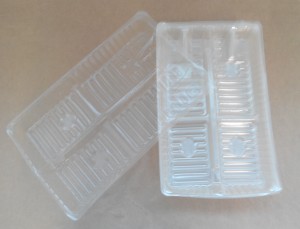New bioplastics more flexible and with low migration suitable for food and textile sector
 PLAPACK project has finished successfully after three years of development. AIMPLAS collaborated in this project, funded by Direct Innovation Line CDTI, along with two research centres and six companies.
PLAPACK project has finished successfully after three years of development. AIMPLAS collaborated in this project, funded by Direct Innovation Line CDTI, along with two research centres and six companies.
The result is a new generation of biodegradable plastics of natural sources used for the manufacturing of clothes hangers, disposable household and food packages.
AIMPLAS (Plastics Technology Centre) has successfully completed its participation in the PLAPACK project, funded by Direct Innovation Line CDTI. The result of this 3 years long research is a new generation of biodegradable, compostable, low migration and high flexibility plastics of natural origin suitable for food contact.
This new generation of bioplastics is a modification of polylactic acid (PLA), so it has a lower environmental impact than current used materials. High compatibility with polymer additives has been employed in its formulation. Processing in extrusion and injection moulding with conventional equipments has been improved in order to achieve properties and characteristics required for every product.
Different plastic products have been developed from this new material: from UV-resistant clothes hangers with low migration so that they will not stain clothes, to packages for the food industry resistant to impacts, low temperatures and oils and with barrier properties to oxygen and water vapour. Equally, the project has accomplished to manufacture glasses resistant to low temperatures and alcohol beverages.
In addition to all these products produced through extrusion and injection moulding processes, it is also possible to obtain multilayer structures made with this new bioplastics. This would adjust not only functional properties but also aesthetic factors at competitive cost.
The consortium was formed by the following companies: Plásticos Erum, Condensia Química, Nanobiomatters, Envaplaster, Papel Plast y Criimpla. AIMPLAS and other research centres such as the Analytical Chemistry, Nutrition and Bromatology Department at the University of Alicante and the Institute of Polymer Science and Technology of the Spanish National Research Council (ICTP-CSIC), have contributed to this project.
AIMPLAS is the Plastics Technology Centre located in Valencia, Spain, and appears on the Register of the Technological Centres of the Ministry of Economy and Competitiveness. It is member of FEDIT, Spanish Federation of Technological Institutes, and REDIT, Network of Technological Institutes of the Valencia Region in Spain.
This non-profit entity aims to be a technological partner to companies of the plastics industry and offers them integral and customized solutions by coordinating and developing R&D projects and technological services (technical assistance, analysis and testing, competitive intelligence and training).
AIMPLAS is also member of networks and platforms such as IMAUT (Innovation in Mobility, Automotive and Transport), AESICOM (Cluster of the Spanish Composites Industry), ASOBIOCOM (Spanish Association of Biodegradable plastics and Compostables) and ECP4 (European Composites, Plastics & Polymer Processing Platform).


































